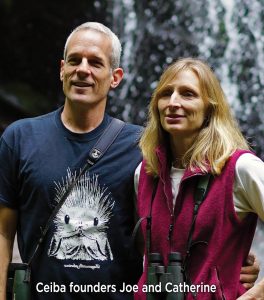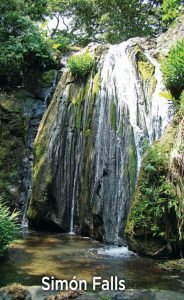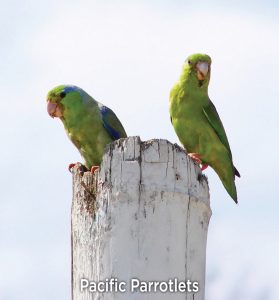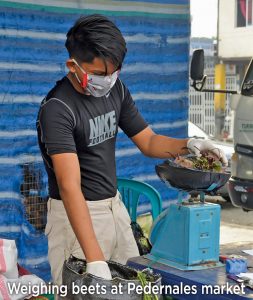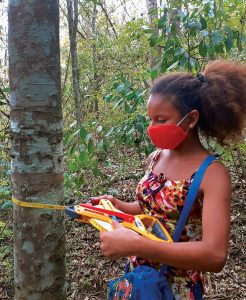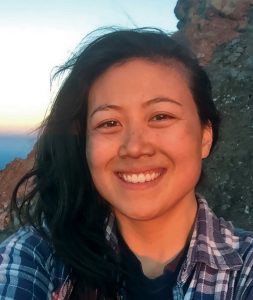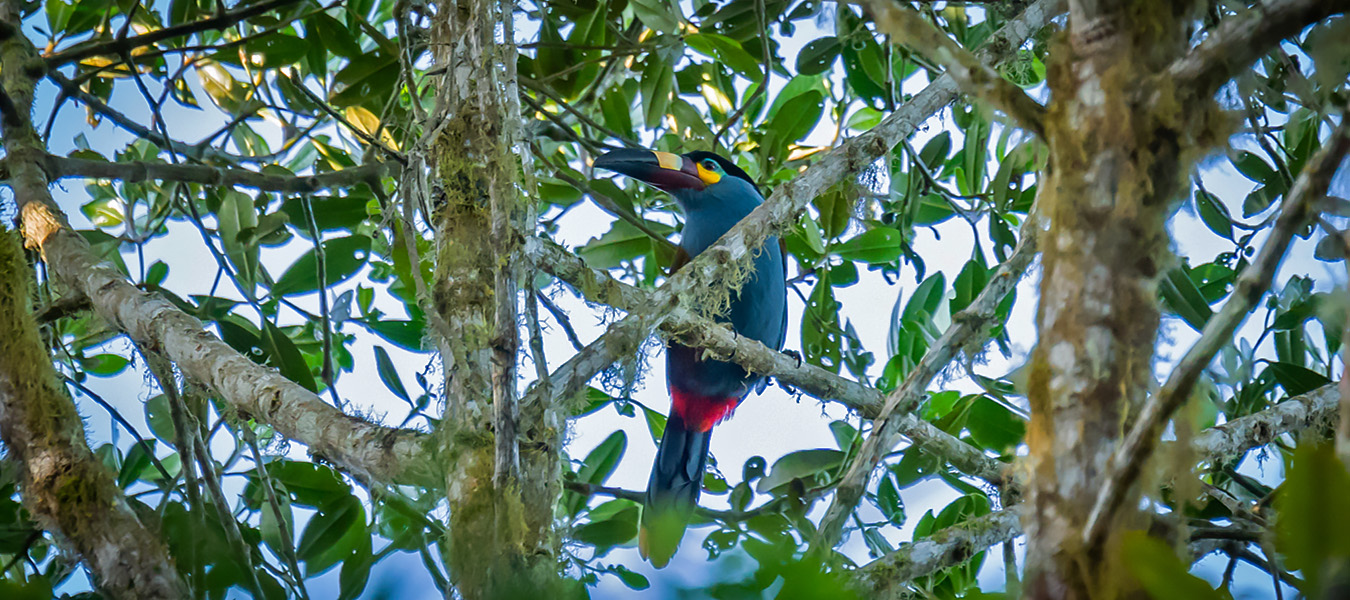
Endangered Howler Monkeys thrive in the dry forest of the Coastal Conservation Corridor
Hot on the heels of celebrating a new conservation easement to protect the Lalo Loor Dry Forest Reserve for years to come, the pandemic upended tourism in Ecuador. Owners of private reserves, like the Loor family, and the Lima family of the El Pahuma Orchid Reserve, saw their principal source of income vanish. Thanks to our donors’ support, Ceiba extended immediate relief funds, keeping rangers employed to thwart illegal hunting and logging. Wildlife thrived as peace and quiet reclaimed the forests, revealing just how resilient nature can be when it is properly protected.
With field courses and projects suspended, Ceiba’s board and staff took time to reevaluate our conservation strategy and refocus our mission: Connecting Nature and People. We connect habitat remnants with corridors of reforestation to conserve biodiversity; we connect human livelihoods to environmental protection by supporting sustainable land use; and we connect learners of all ages to the wondrous ecosystems around them through outdoor education.
Reconnecting with nature has been a bright spot in these trying times. Unable to safely attend indoor gatherings, people are escaping to natural areas in unprecedented numbers, seeking rejuvenation of the body, and the mind. As travel restrictions have lifted in Ecuador, there has been an uptick in visitors to the El Pahuma and Lalo Loor reserves. Ceiba worked hand-in-hand with reserve staff to implement recommended safety protocols, rerouting trails into one-way loops and substituting live guides with improved signage. Even so, it remains hard to earn a living by protecting a forest. If it were easier, the world might not be facing the deforestation, climate, and biodiversity crises of today.
Ceiba’s dream of a Coastal Conservation Corridor came to fruition in 2020 with ratification of our bold Conservation and Sustainable Use Area (ACUS, in Spanish) in western Ecuador.
The ACUS straddles the equator, encompasses over 800 square miles (twice the size of Rocky Mountain National Park) and protects 330 square miles of tropical deciduous forests, including coastal vegetation and mangroves. The declaration establishes a legal framework for community-based conservation of threatened ecosystems and species, like the Mantled Howler Monkey (above), and promotes reforestation and sustainable land management that will reconnect forests and protect water sources (like Simón Falls, below).
Native trees for reforestation projects are being grown in the family-run Martinez nursery in Tabuga
Long term conservation is only possible when the aspirations of local communities align with the goals of habitat conservation and species protection. For years, Ceiba has promoted sustainable entrepreneurship within the Coastal Conservation Corridor, and now we have new backing for these programs. We were recently awarded a grant from the German Agency of International Cooperation to stimulate safe reactivation of tourism in four coastal communities nestled in tropical deciduous forests near Machalilla National Park and El Pelado Marine Reserve (home to the tiny Pacific Parrotlet, below).
Ceiba’s multi-pronged initiative will help communities implement comprehensive bio-safety measures to minimize risks for returning visitors. The grant will finance construction of essential infrastructure so artisans can sell their products directly to visitors, ensuring a fair price for their work. We also will lead training sessions for local women to elevate the quality of their artisanal crafts and improve sustainability in all phases of production, like seed collection and packaging. Our goal is for coastal communities to become more prosperous and resilient by building a greener economy that sustains rural people and alleviates pressure on wild lands and the region’s unique plants and animals.
In 2016, a devastating earthquake literally shook the lives of everyone around the Lalo Loor Reserve, Ceiba’s flagship conservation project for the past decade. Our staff, volunteers, and donors instantly stepped up to give critical assistance to the most affected households.
Multi-day workshops on ecotourism and sustainable agriculture unite conservation-minded friends
Spotting howler monkeys, taking photos to compare different seasons in the forest, and measuring (and hugging!) trees are all fun outdoor activities at the heart of our local environmental education programs. Through several key partnerships, Ceiba continues to stimulate environmental consciousness in future generations on the Manabí coast.
Throughout 2020, Ceiba has offered our own outdoor education experiences (sometimes virtually), for children from numerous regional schools. Together with the local A Mano Manaba Foundation and several area libraries, nature conservation theory and practice are combined during fun field visits. In the process, teachers and school kids are showing a stronger commitment to understanding and safeguarding their forests.
In the nearly 10 years that have passed since I attended Ceiba’s Tropical Conservation Semester (TCS) program in Ecuador, I’ve built trails, traveled across the western US and Central America, picked up rock climbing and snowboarding, and finished an M.S. in Water Resources. Now I’m working towards a Ph.D. at the University of Washington, using satellite remote sensing and modern data science approaches to study seasonal mountain snow.
Ceiba stands with those who support peace, justice, equality, and freedom. For over twenty years, we have been striving to make the world safer, more diverse, and more equitable, and we remain committed to creating a more just world where everyone can enjoy equal access to nature. A 2017 National Science Foundation study revealed that only 6% of students studying abroad identified as Black, despite making up 13.4% of the population, and just 6% of all life science doctorates were awarded to Black students. In response, Ceiba is working to establish scholarships to make our study abroad programs, and the science training and international experience they provide, more accessible to Black, Indigenous, and other people of color. As Maya Angelou said, “the truth is, no one of us can be free until everybody is free.”
Want to keep up to date with Ceiba’s projects? Sign up for our quarterly newsletter!
